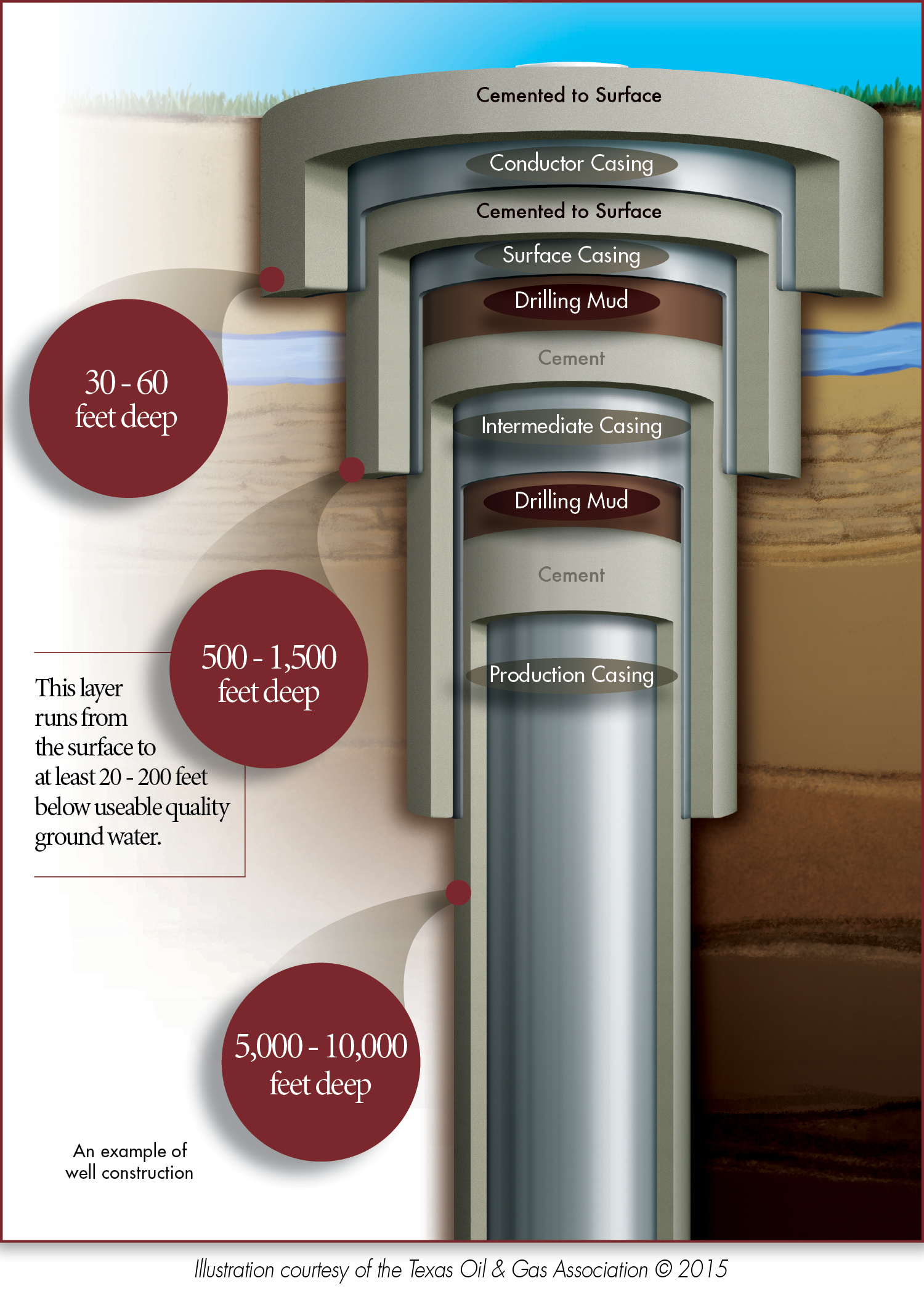Wells are required by law to be constructed with multiple layers of industrial-grade steel casing (pipe) which is surrounded by cement to create a redundant safeguard for underground freshwater supplies. The Environmental Protection Agency recently completed a comprehensive five year study of fracking’s effects on drinking water and concluded that fracking has not led to water contamination. Likewise, research from Yale University and Colorado State University recently confirmed fracking is not contaminating groundwater.
The steel casing (pipe) and cementing process may be repeated as the well deepens. Highly-regulated safety systems – and thousands of feet of rock – keep oil and natural gas out of the freshwater and freshwater out of the oil and natural gas. The casing must remain in place even after a well becomes inactive to ensure permanent fresh groundwater protection.


